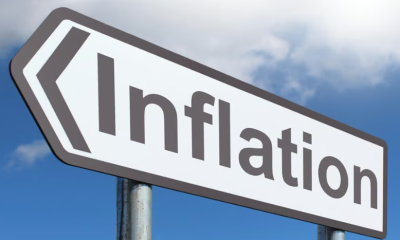By Odunewu Segun
Financial experts have pick holes in the recent claims by the National Bureau of Statistics that inflation rate in Nigeria eased again in September to 15.98 from 16.01 per cent in August.
Reacting to the statistics, Osilama Okuofu, a financial analyst and management consultant told National Daily that the celebration of eight consecutive months of decline in inflation by the Federal Government is not a big deal as anyone with a discerning mind would know that when a government reduces capital expenditure, plus a tight monetary policy regime, inflation would drop.
He said a drop in inflation rate without corresponding drop in food prices is meaningless to Nigerians who still have to pay through their nose to buy common goods.
According to him, with the Central Bank of Nigeria (CBN) keeping the MPR at 14 per cent and CARR at 22.5 per cent inflation would drop but at a great expense to real growth, “ it is common sense!. Even Sen. Ben Bruce knows that.”
Okuofu said those popping champagne drinks should stop deceiving Nigerians whose disposable income & consumer pricing have seen no improvement. “This is nominal & not real. The stack reality is what the wallets, purses & pockets tell us,” he added.
ALSO SEE: Pfizer has been able to systematically reduce cardiovascular concern – Olele
In his own views, Prof. Sheriffdeen Tella of Economics Department, Olabisi Onabanjo University, Ago-Iwoye, Ogun, said the restrictive monetary policy of CBN with high interest rates has not made economic recovery faster, and must be looked into.
He said that the improvement could encourage investors to go for credits in the capital market for business expansion. The professor added that sourcing of funds for business expansion would make the capital market vibrant and reduce profit-taking attitude of shareholders.
Mr Ambrose Omordion, the Chief Operating Officer, InvestData Ltd., said that the Federal Government should roll out stimulus packages for the critical sectors of the economy to drive growth which would help to reduce prices as the economy had yet to feel the impact of huge budgets in the last two years.
In spite of the increases in food sector, the NBS said the CPI, which measures inflation increased by 15.98 percent (year-on-year) in September. This was 0.03 percent points lower than the rate recorded in August (16.01) percent making it the eighth consecutive decline in the rate of headline year on year inflation since January 2017.
The National Bureau of Statistics, NBS, in its Consumer Price Index, CPI, report for the September, said the rise in the index was caused by increases in prices of potatoes, yams and other tubers.
Others are milk cheese and eggs, bread and cereals, coffee tea and cocoa, soft drinks, fish, meat and oil and fats. On a month-on-month basis, the food sub-index increased by 0.87 percent in September, down from 1.14 percent recorded in August.

 Entertainment1 week ago
Entertainment1 week ago
 Entertainment4 days ago
Entertainment4 days ago
 Comments and Issues1 week ago
Comments and Issues1 week ago
 Comments and Issues1 week ago
Comments and Issues1 week ago
 Business1 week ago
Business1 week ago
 Comments and Issues1 week ago
Comments and Issues1 week ago
 Health6 days ago
Health6 days ago
 Football6 days ago
Football6 days ago












